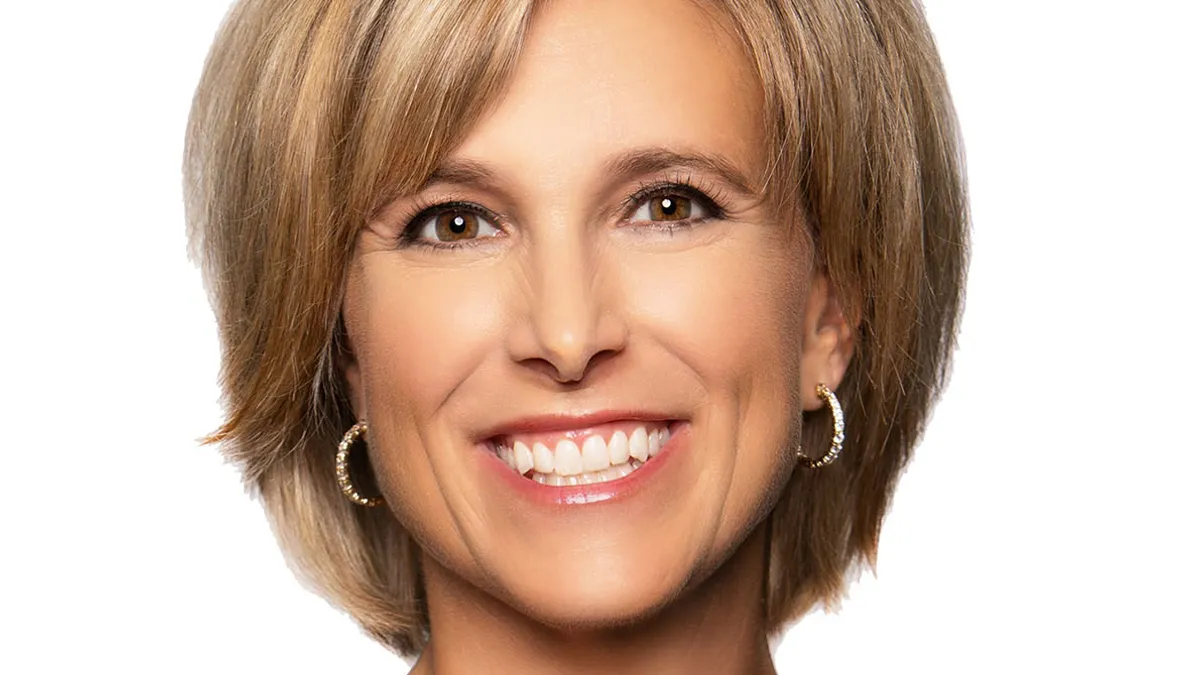Dive Brief:
- Fidelity National Information Services faces tough competition from the Dutch fintech Adyen in its Worldpay global e-commerce payments business, FIS Chief Executive Stephanie Ferris said at an investor conference last week, complimenting the rival as doing a “fabulous job.”
- With respect to winning business from small- and midsize e-commerce merchants, Ferris pointed to the fintech Stripe as a major FIS competitor, according to a transcript of the May 22 event.
- “We never made a big investment to compete with Clover or Square because, for us, we couldn’t compete there,” Ferris said. “We didn’t have the direct digital distribution. We didn’t have feet on the street. We knew that was too far gone of a market for us, so we put our money in e-commerce.”
Dive Insight:
The spin-off of the company’s Worldpay unit into a separate publicly traded business is expected to occur by the first quarter of next year, Ferris said. FIS has created a separation management office to make that happen and it’s attempting to make sure it’s a tax-free event, she said at the JPMorgan Chase investor conference.
The incoming CEO for Worldpay is Charles Drucker, who formerly led the business. FIS acquired Worldpay in 2019, paying $35 billion to buy the company.
In speaking about the Worldpay business, Ferris said it spars with Adyen in some parts of the market, but not in others. She noted that Adyen has achieved an advantage in serving internet marketplaces, where “they were smart” in building out capabilities while FIS was busy absorbing Worldpay. Still, she noted Worldpay strengths in gaming and travel.
When Worldpay is winning business around the world, it’s mainly from local acquirers in other countries, and only occasionally going head-to-head with Adyen because they are the only two players with worldwide reach, she argued. That said, she acknowledged rival fintech Stripe is building out such capabilities, too.
“It’s been a challenge because we’ve gotten into a tough spot with our balance sheet whereby we don’t have the M&A capital to continue to commit and help grow that business,” Ferris said, reiterating the FIS rationale provided this year for spinning off the unit. FIS acquired the fintech Payrix in 2021 for $777 million, according to the company’s annual filing with the Securities and Exchange Commission in February, and added it to Worldpay.
Worldpay has deliberately not specialized in verticals, allowing it to offer a more universal product, but it’s possible that could change under Drucker’s leadership, Ferris said. In some verticals where the company is selling through independent software vendors and doesn’t face major competitors, the company is doing “really well,” but in other ISV verticals, including retail and restaurants, it’s losing business to rivals, she said.
With respect to FIS’s remaining banking and capital markets businesses, Ferris stressed that its financial institution clients aren’t under undue stress despite recent banking failures. “There is no feeling of crisis across the financial services and banking sector,” she said.
The majority of banks are seeing net deposit increases and more loan activity, she said. “Credit is definitely going to tighten up on them, as you’ve seen from the loan commercial officers, but broadly, these banks are not panicked,” she said.
She also noted the benefit of long-term contracts on that side of the FIS business, but underscored the need to carefully manage every aspect of the FIS business.
“Some of my competitors, just to give them props, have done a better job at that than we have over the last couple of years,” she added.
The company has been tripped up, to some extent, by Ferris changing the chief revenue officer last year, she said. Subsequently, compensation for the sales employees also changed, and required them to be more focused on building expertise in industry verticals, she said. She expected some employee churn as a result and previously lowered the company’s revenue expectation this year for that banking business.
“That’s a lot of change for a sales channel, so we are absorbing that,” she said.
In connection with the company’s overall cost-cutting program, designed to save $1.25 billion, she acknowledged FIS probably over-hired during the COVID-19 pandemic. As of early this year, FIS had cut some 2,600 workers, or about 2% of the worldwide full-time workforce, under the cost reduction plan, according to a Bloomberg report in February.
FIS also disclosed in a Friday filing with the SEC that it had parted ways last week with its chief accounting officer, Thomas Warren, who was replaced by Christopher Thompson.











